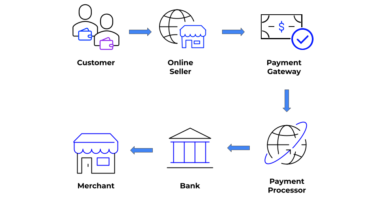Embarking on the journey of starting a consultancy practice is an exciting and rewarding endeavor. As a consultant, you have the opportunity to share your expertise, make a meaningful impact, and shape your own professional path. In this blog post, we will explore the key steps to launch a consultancy practice, guiding aspiring consultants through the process of turning their knowledge into a thriving business.
1. Identify Your Niche and Expertise:
Define the specific area in which you excel and have deep knowledge. A clear niche will help you differentiate yourself in the market and attract clients looking for specialized expertise. Consider your passion, experience, and the problems you can effectively solve for your clients.
2. Market Research:
Conduct thorough market research to understand the demand for your services, identify competitors, and pinpoint your target audience. Gather insights into the challenges your potential clients are facing and tailor your offerings to address these needs.
3. Create a Business Plan:
Outline your consultancy practice’s mission, vision, and goals. Develop a detailed business plan that includes your target market, pricing strategy, revenue projections, and marketing approach. A well-structured plan will serve as your roadmap and a valuable tool for securing funding if needed.
4. Legal and Regulatory Compliance:
Register your consultancy practice as a legal entity, considering options like sole proprietorship, LLC, or corporation. Familiarize yourself with local and industry-specific regulations and obtain any necessary licenses or certifications. Consult legal professionals to ensure compliance and protect your business.
5. Build an Online Presence:
Create a professional website that showcases your expertise, services, and client testimonials. Utilize social media platforms to build a presence and engage with your target audience. Consider starting a blog or sharing valuable content to position yourself as an industry thought leader.
6. Networking and Relationship Building:
Forge connections with industry professionals, potential clients, and other consultants. Attend networking events, join online forums, and participate in relevant conferences. Building a strong professional network can lead to valuable collaborations and client referrals.
7. Set Clear Pricing and Service Models:
Determine your pricing structure and service models. Clearly communicate your value proposition to clients, showcasing the benefits they will receive from your services. Be transparent about your rates and the value they will gain from investing in your consultancy.
8. Develop Client Contracts and Agreements:
Create comprehensive contracts and agreements that outline the scope of your services, deliverables, timelines, and payment terms. Clearly define expectations to avoid misunderstandings and establish a foundation for a strong client-consultant relationship.
9. Market Your Consultancy:
Implement a robust marketing strategy to attract clients. Utilize digital marketing, content creation, and traditional marketing methods to increase your visibility. Leverage your network and ask satisfied clients for testimonials that can enhance your credibility.
10. Continuous Learning and Adaptation:
Stay abreast of industry trends, new methodologies, and evolving client needs. Continuous learning will enhance your expertise and enable you to offer cutting-edge solutions. Be adaptable and willing to refine your approach based on client feedback and market dynamics.
Conclusion:
Launching a consultancy practice requires a strategic approach, dedication, and a commitment to delivering value to your clients. By carefully navigating each step, from defining your niche to building a strong online presence, you can establish a consultancy practice that not only survives but thrives in a competitive business landscape. Embrace the challenges, stay true to your expertise, and enjoy the journey of building a successful consultancy practice.










